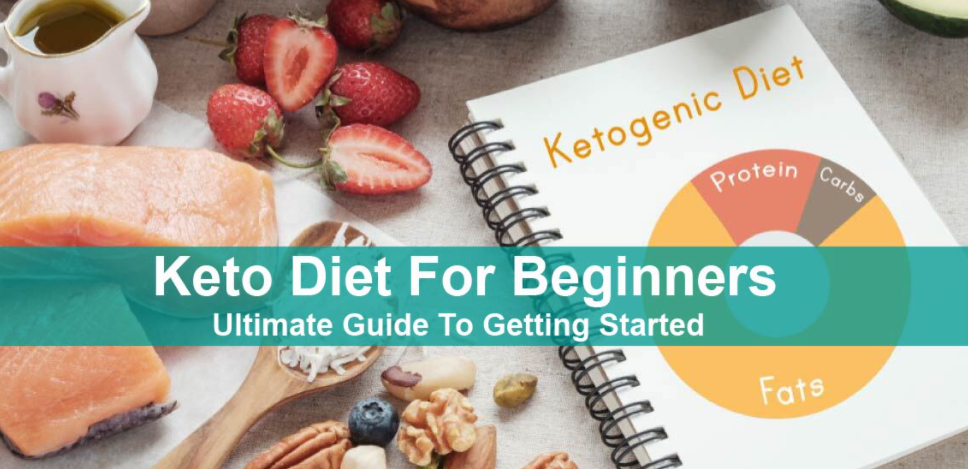Starting a keto diet can feel overwhelming, but with the right guidance and essentials, it becomes manageable and rewarding. This low-carb, high-fat lifestyle promotes weight loss, boosts energy, and enhances overall well-being. Understanding what you need to kick-start your keto journey is crucial for long-term success. Let’s explore the core components of a successful ketogenic diet.
What is the Keto Diet?
The ketogenic diet is a nutritional approach that focuses on drastically reducing carbohydrate intake and increasing fat consumption. This shift encourages your body to enter a state of ketosis, where it burns fat for fuel instead of glucose. By understanding this mechanism, you’ll be better equipped to embrace keto diet essentials and maximize your results.
Benefits of the Keto Diet
Adopting the keto diet offers a range of health benefits. It helps regulate blood sugar levels, supports weight loss, and improves mental clarity. Additionally, it may reduce the risk of chronic diseases like type 2 diabetes and heart disease. Knowing these benefits can keep you motivated and ensure that you stick to the plan.
Stocking Your Kitchen with Keto Diet Essentials
One of the first steps to starting keto is equipping your kitchen with the right ingredients. Focus on whole, unprocessed foods like meat, eggs, fish, healthy fats, and low-carb vegetables. Nuts, seeds, and keto-friendly snacks can also be lifesavers when cravings strike. Having these essentials readily available makes it easier to prepare delicious and compliant meals.
Healthy Fats: The Foundation of Keto
Fats are the cornerstone of the ketogenic diet. Incorporate sources like avocado, olive oil, coconut oil, and butter into your meals. These healthy fats provide sustained energy and keep you feeling full longer. Avoid trans fats and opt for natural, unprocessed options to stay on track with your keto goals.
Proteins: The Building Blocks
Choose high-quality protein sources like grass-fed beef, free-range poultry, and wild-caught fish. Proteins are vital for maintaining muscle mass while losing weight. Keep portions moderate, as excessive protein can hinder ketosis. Balance is key when integrating proteins into your diet.
Low-Carb Vegetables: Nutrient Powerhouses
Leafy greens, broccoli, cauliflower, zucchini, and bell peppers are excellent vegetable choices for keto. These provide essential vitamins, minerals, and fiber while keeping carb intake low. Experiment with different recipes to make your meals exciting and nutrient-dense.
Planning Your Keto Meals
Meal planning is a crucial aspect of the keto lifestyle. Start by creating a weekly menu that includes breakfast, lunch, dinner, and snacks. Focus on incorporating keto diet essentials into each meal to ensure you’re meeting your macronutrient goals. Prepping meals in advance can save time and reduce the temptation to stray from your plan.
Keto-Friendly Snacks to Curb Cravings
Snacking can make or break your keto journey. Keep options like cheese sticks, hard-boiled eggs, nuts, and keto fat bombs on hand. These snacks are convenient and help maintain your energy levels throughout the day. Avoid processed snack foods, as they often contain hidden carbs.
Staying Hydrated and Replenishing Electrolytes
Proper hydration is essential when starting keto. Drink plenty of water and consider adding electrolytes like sodium, potassium, and magnesium to prevent dehydration and combat the “keto flu.” Bone broth and electrolyte supplements can be helpful in maintaining balance during the initial stages of ketosis.
Overcoming Common Keto Challenges
Transitioning to a keto diet can come with challenges, such as cravings and energy dips. Combat these by staying committed to your keto diet essentials and focusing on your goals. Incorporate strategies like mindful eating, regular exercise, and connecting with a supportive community to stay motivated.
Monitoring Progress and Adjusting Your Plan
Track your progress by monitoring your weight, measurements, and energy levels. Adjust your meal plan and macronutrient ratios as needed to optimize results. Staying flexible and consistent with your approach ensures long-term success on your keto journey.
The Importance of Patience and Consistency
Adapting to a keto lifestyle takes time and dedication. Celebrate small victories and remember that consistency is key. Embrace the learning process and keep refining your habits to achieve your health goals.
Conclusion: Embrace Keto with Confidence
Embarking on a ketogenic diet can transform your health and well-being, but preparation is essential. By understanding and incorporating keto diet essentials, you’ll set yourself up for success. Focus on whole foods, healthy fats, and proper hydration while staying committed to your goals. With patience and determination, the keto lifestyle can lead to lasting benefits and a healthier, more energized you.

